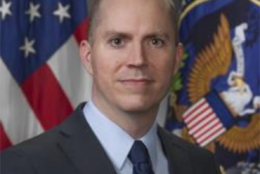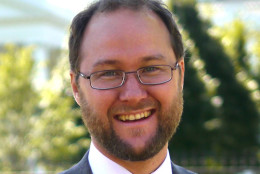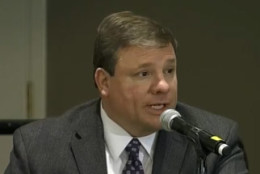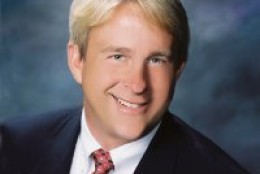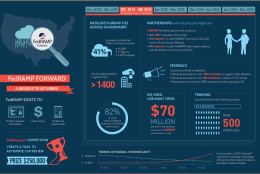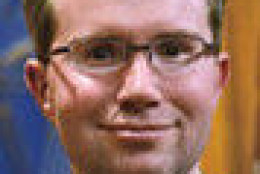data
-
For data-driven problem-solving to have continuing impact, it has to be baked into the bureaucracy.
October 07, 2016 -
As the federal government moves steadily, if not quickly, toward IT modernization and data-driven solutions, executives from fields other than IT are looking at how new technologies, like simulations, can benefit their missions.
September 22, 2016 -
The government has made progress in opening up its vast stores of data and getting it to flow. But, as it approaches 2017, it still has lots of data on paper or in formats that aren't machine-readable. So the work continues. In fact, the Data Foundation holds its fourth annual Data Transparency summit this month, and the White House itself will participate. Data Foundation imterim president Hudson Hollister joins the Federal Drive with Tom Temin with more.
September 21, 2016 -
The Intelligence Advanced Research Projects Activity has been funding research it hopes will have a big payoff not just for the intelligence community, but for the public as well.
August 30, 2016 -
Intelligence analysts say a new Defense Department data gathering policy helps civil liberties and intelligence work.
August 05, 2016 -
The Obama administration has launched what it calls the Data Driven Justice Initiative to alleviate the cost of mass incarceration. Dave Wilkinson, director of the White House office of Social Innovation and Civic Participation, joins Federal Drive with Tom Temin to share details on the initiative.
August 01, 2016 -
An exclusive Federal News Radio survey found that about 45 percent of public and private sector employees disagreed with the notion that their office or agency was better prepared to protect against future data breaches. Only about 25 percent of respondents said they were confident their workplace understood cyber risks.
June 07, 2016 -
More agencies need to become alert to when there's a shift in the market, technology, or best practice that requires a shift in approach.
May 02, 2016 With the growth of connected systems, commonly known as the Internet of Things, as well as better sensors and more devices, the amount of data agencies, and particularly the Defense Department, have to manage will only continue to grow.
March 28, 2016-
Two researchers found the data used to gauge how much corruption takes place in the United States relies on data they describe as sparse and of dubious quality. Professors Adriana Cordis of Winthrop University and Jeffrey Milyo of the University of Missouri argue better data will lead to better understanding of the scope of corruption and how to deal with it. Milyo provides Federal Drive with Tom Temin more about the research.
March 23, 2016 -
Data has become the life blood of decision-making at many federal agencies. Greg Godbout is one of the leaders in federal data adoption. Now the chief technology officer at the Environmental Protection Agency, he's helping decision-making at both the federal and state levels. Federal Drive with Tom Temin interviewed Godbout and the agency's chief data scientist, Robin Thottungal, for an update on data initiatives. Godbout explained how data innovation can keep federal executives from making bad decisions on what they don't really know.
December 01, 2015 -
William Van Vleet III, CEO of Haystax Technology, makes the case for analyzing employee behaviors at the keyboard and away from the office.
November 16, 2015 -
Matt Goodrich, FedRAMP director at the Office of Citizen Services and Innovative Technologies at GSA, wants to hear what's working and what's not as more agencies move to the cloud.
August 13, 2015 -
The U.S. Agency for International Development is learning more about the countries it works with, thanks to a few new open data projects. The agency recently hosts its first-ever Open Data Hackathon. More than 100 participants worked on eight different projects. Alana Marsili, an open data specialist at USAID, led the Hackathon. She tells In Depth with Francis Rose about who participated.
June 04, 2015 -
You think you're facing cybersecurity threats now — just wait. Cyber threats coming at agencies will dramatically expand over the next five years as the amount of data and the use of mobile devices grow. It means agencies and contractors both need to think differently about cybersecurity. David Bray is the FCC's chief information officer. He tells executive editor Jason Miller about some potential ways to stay afloat in the rough cyber seas ahead.
March 27, 2015




